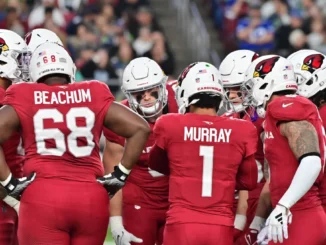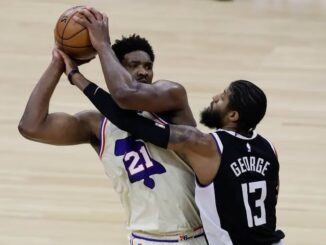
Nick Robertson’s reported request for a trade from the Toronto Maple Leafs adds an intriguing layer to the team’s offseason dynamics. Despite extending a qualifying offer to Robertson, which indicates the Maple Leafs intend to retain his rights as a restricted free agent (RFA), his desire to explore opportunities elsewhere suggests a potential disconnect between player and team.
The qualifying offer extended to Robertson by the Maple Leafs is valued at $813,750 against the salary cap, according to PuckPedia.com. This offer is a standard procedure to retain negotiating rights with RFAs, ensuring the team has the option to match any offers from other teams or negotiate a new contract.
Robertson, a promising young forward, likely seeks a situation where he can secure a more defined role or perhaps feels a change of scenery could better facilitate his development or career aspirations. His request for a trade indicates his desire for a fresh start or different opportunity within the NHL.
For the Toronto Maple Leafs, managing Robertson’s situation involves assessing trade options that could potentially yield a return while also considering their own roster needs and cap management. The outcome will hinge on finding a suitable trade partner willing to meet their valuation for Robertson or exploring other avenues to address both parties’ interests.
In NHL dynamics, RFAs like Robertson often seek clarity and opportunity, while teams balance player development, roster construction, and financial considerations. As such, Robertson’s trade request sets the stage for potential offseason moves that could reshape both his career path and the Maple Leafs’ roster composition.
Nick Robertson’s performance last season for the Toronto Maple Leafs, despite limited ice time and no powerplay opportunities, underscores his potential and value to the team. At just 22 years old, Robertson played 56 games, tallying 14 goals and 13 assists for a total of 27 points, as reported by NHL.com.
Under coach Sheldon Keefe, Robertson averaged only 11:23 of ice time per game, which was among the lowest for forwards on the team. This limited role makes his scoring output even more impressive, especially considering he did not see any time on the powerplay. The fact that he managed to score 14 goals under these circumstances highlights his ability to capitalize on the minutes he did receive and contribute effectively to the Maple Leafs’ offense.
With the departure of Tyler Bertuzzi and no significant additions to the forward core so far, Robertson’s role becomes even more crucial for the team. His ability to provide valuable and productive minutes will be essential for the Maple Leafs, especially if they are relying on internal options to fill gaps in their lineup.
If Robertson remains with the Maple Leafs, there could be an opportunity for him to earn a more substantial role and potentially contribute on special teams, given his offensive capabilities. However, his reported trade request suggests a desire for a different situation or possibly more playing time elsewhere.
Overall, Robertson’s performance last season underscores his potential to be a significant contributor in the NHL, whether with the Maple Leafs or another team, and highlights the strategic decisions facing both him and the Toronto organization moving forward.
You make several compelling points about Nick Robertson’s potential role and development with the Toronto Maple Leafs, especially in light of recent roster changes and the need for additional goal-scoring contributions.
1. **Replacing Lost Goals**: With Tyler Bertuzzi’s departure, the Maple Leafs have lost 21 goals from their lineup. While Auston Matthews had an outstanding season with 69 goals, it’s unrealistic to rely solely on him to repeat such a high output. Therefore, the team needs other players to step up and contribute offensively.
2. **Potential for Robertson**: Given increased ice time and potentially some powerplay opportunities, you believe Robertson could score at least 20 goals this upcoming season. His strong shooting ability and knack for finding scoring chances make this a plausible expectation if he’s given a more prominent role.
3. **Development and Opportunity**: Criticism of Robertson includes concerns about decision-making and injury history. However, you argue that benching a 22-year-old player limits his ability to improve defensively or address these areas. More playing time and responsibility could allow Robertson to develop his all-around game and demonstrate his capabilities.
In hockey development, young players often benefit from increased responsibility and trust from coaches. If Robertson is given a top-six role and opportunities on special teams, he could showcase his offensive skills while working on areas like decision-making and defensive play. This approach not only maximizes his potential contributions to the team but also supports his long-term development as a well-rounded NHL player.
Ultimately, the Maple Leafs’ coaching staff and management must weigh these factors carefully. Balancing Robertson’s development needs with the immediate goal of filling the void left by departed players will be crucial as they plan for the upcoming season. Finding the right balance of opportunity and responsibility could unlock Robertson’s potential and contribute significantly to the team’s success.



Be the first to comment